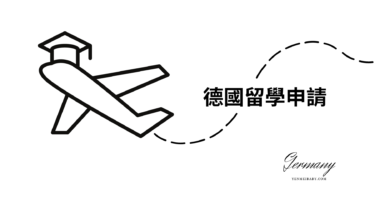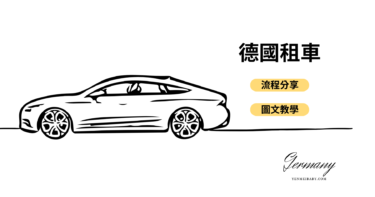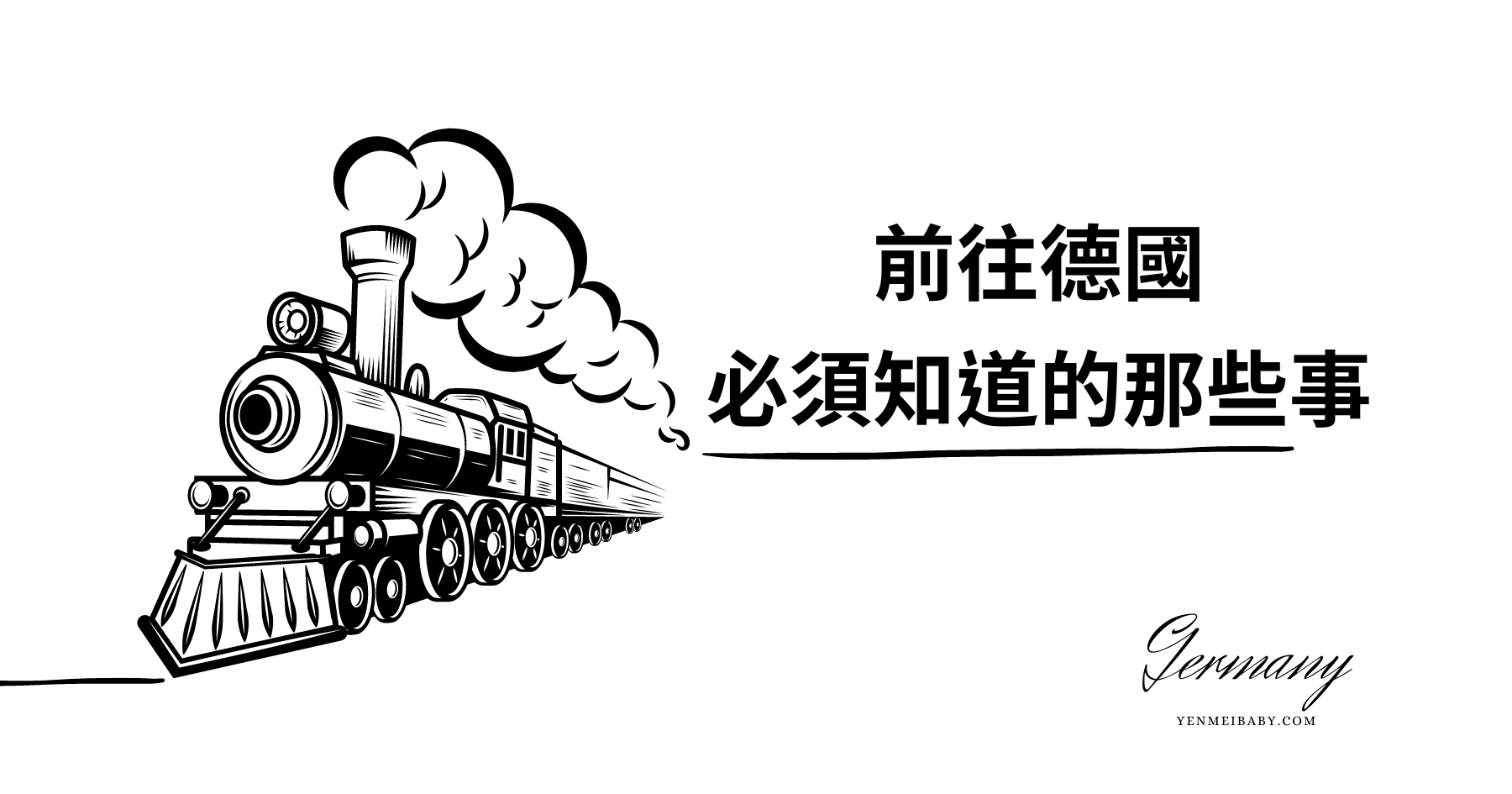
Preparing for a Visit to 【Germany】: Precautions, Holidays, DeutscheBahn, and Transportation Tips
Contents
Precautions before the trip
When arriving in a new country, there are always small things to pay attention to in order to avoid feeling unlucky or having everything go wrong. In fact, it is just a matter of different customs and cultures that cause inconvenience. By being prepared and accustomed, encountering these situations will not be so difficult. There are many things to pay attention to in Germany, and I didn’t notice these things at first, so I spent a lot of time and money unnecessarily. Here, I would like to share my experience with everyone, hoping that everyone can have a smooth trip.
National Holidays
The first important thing to note is whether the arrival time in Germany coincides with a national holiday. You may wonder why we need to pay attention to when they are having holidays when we just arrived in Germany. Isn’t it too eager to take a break? Let me explain.
If it is just for travel purposes, arriving in a new country during a holiday period may not have much impact, at most, just not being able to go shopping. However, if you are planning to settle in Germany for a long time, encountering holidays just after arrival may cause a lot of trouble. Many things need to be arranged and purchased when you first arrive, and you also need to handle many documents or apply for a place to live. All these things need to be done as soon as possible after arrival. If you happen to encounter a national holiday in Germany, it will be a real headache. During holidays, almost all units in Germany are closed, even supermarkets. Only supermarkets near major train stations in big cities and some restaurants are exceptions. At this time, you can only wait until normal working days to continue processing your to-do list, which will increase the time and cost of handling things. Therefore, it is important to pay attention to whether there are holidays when you arrive in Germany and plan accordingly in advance to avoid these issues.
Germany is a federation (Bundesland), just like the United States, so not all states have the same holidays. For example, Hamburg has the least holidays in Germany, so it is best to check the holidays of a state using the name of that state. For example, if I want to check the holidays in Hamburg, I will search for “Hamburg feiertag” to get the most accurate holiday information. The following figure compares the holidays in Hamburg and Bavaria. As mentioned in the previous article, Hamburg’s port festival was already during a holiday period, so there was no additional holiday. Hamburg is indeed a hardworking city.
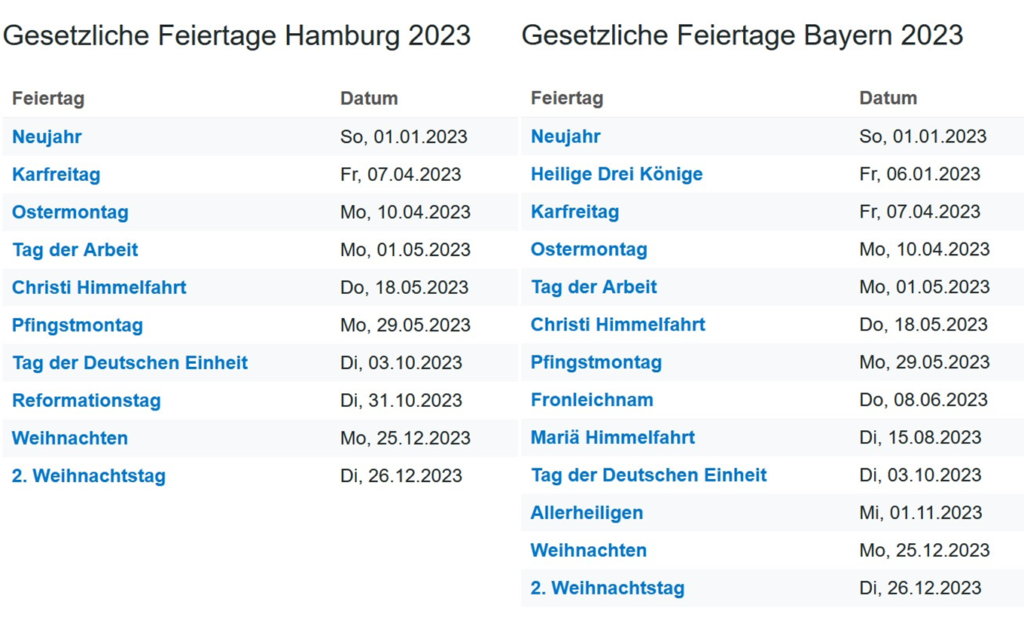
Opening time for stores or units
Another thing to note is that the operating hours of government agencies in Germany are not long, and usually require writing a letter to make an appointment in advance. If you need to handle business that does not require an appointment, it is also recommended to check the operating hours on their official website in advance. If you go directly, you may often find the agency closed. For example, the foreign affairs office in the city where I used to live had short operating hours, was closed on Wednesdays, and only opened until noon on Mondays and Fridays. Additionally, this agency noted that appointments are required for all services.
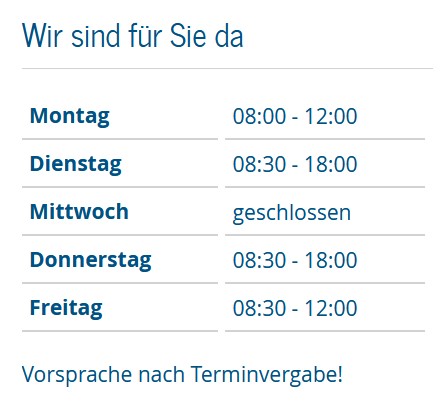
Deutsche Bahn
The public transportation in Germany, especially the Deutsche Bahn (DB) railway, often undergoes maintenance and repairs. Sometimes, a section of a railway unexpectedly turns into a shuttle bus. For those who are new to Germany and not familiar with the area, relying solely on Google Maps may not always be helpful, especially when there is no data available in real-time. This is where the DB Navigator mobile app (or the Deutsche Bahn website) comes in handy. Although the Deutsche Bahn railway is often delayed, their app is well-designed. The app provides up-to-date information on all forms of transportation in Germany (I cannot guarantee it covers transportation outside of Germany). It organizes all train types, including the express ICE, the fast train (EC, IC), the slow train (RE, RB, S), the light rail (strassebahn) in urban areas, and the subway (Ubahn). Once you input your route, the app displays the status of your train, the time and platform number for the train transfer, and alternative routes in case of delays.
Deutsche Bahn Train Ticket
By the way, let me explain what a train ticket looks like and its content.
After booking a ticket, you will receive a PDF file of an electronic ticket like the one shown below. The ticket also includes some important notes at the bottom, but I have cropped them out.
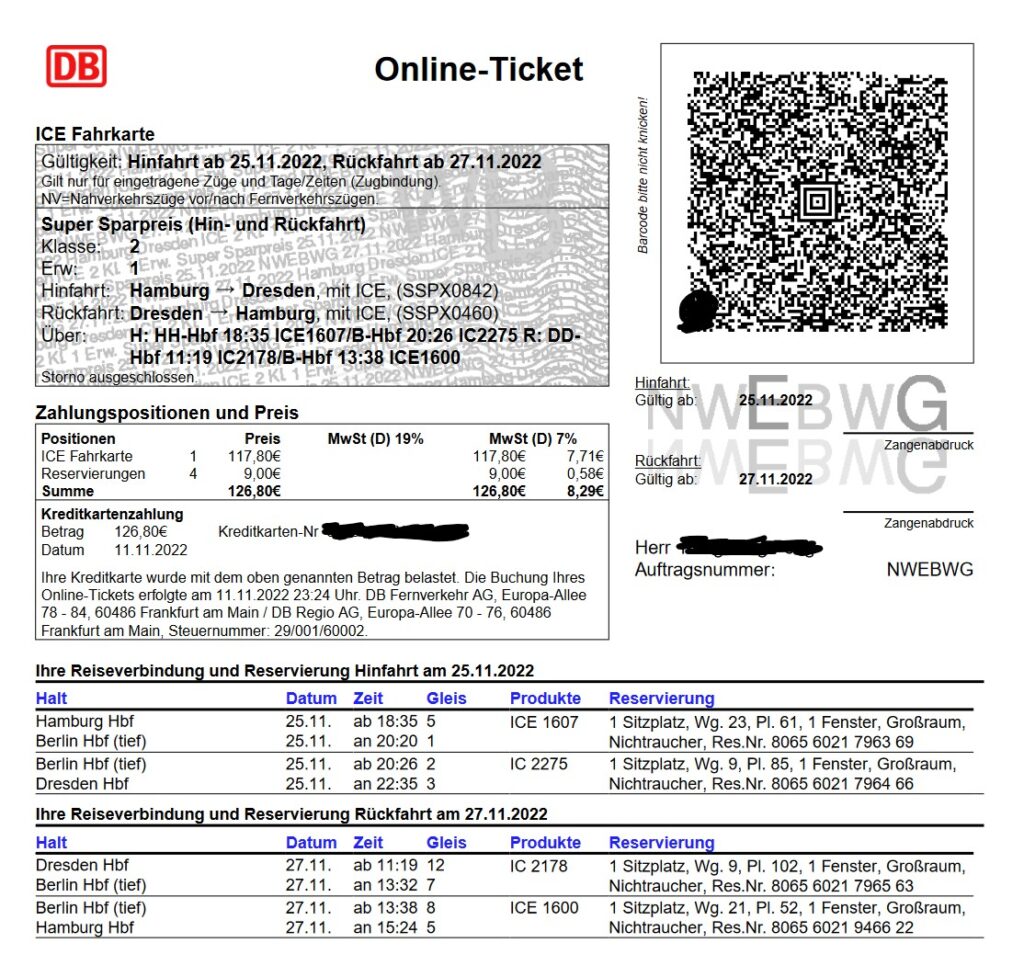
First of all, the QR code in the upper right corner of the ticket is for the conductor to scan and check the ticket. Basically, when taking a long-distance train, the ticket will definitely be checked, so don’t try to avoid it just because there are no gates.
The gray column on the left is the simple usage information of your train ticket from top to bottom: outbound (Hinfahrt), return (Rückfahrt), ticket type: super saver (Super Sparpreis), car class (Klasse): 2, and your destination for round trip. The next column is the payment information.
At the bottom is your boarding information, including the stops (Halt) of the train, date (Datum), time (Zeit), departure (ab), arrival (an), platform (Gleis), train number (Produkte), and your seat information (Reservierung).
The seat information includes: a seat (Sitzplatz) in car 23 (Wg. 23) at seat 61 (Pl.), by the window (1 Fenster).
These are the main information displayed on the ticket, but it is important to note that sometimes the train may change platforms at the last minute, so you need to pay attention to the train information board at the station and confirm the platform with your train number.


